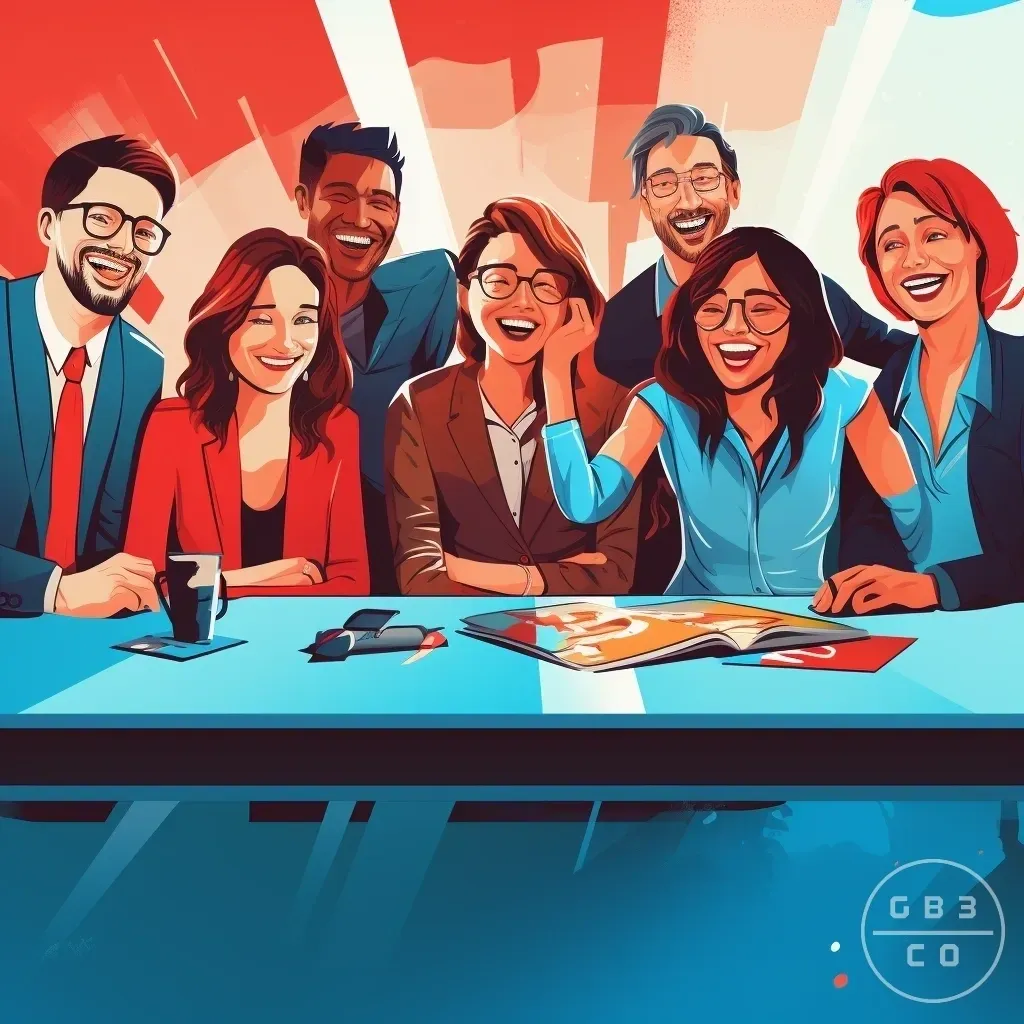
When I first ventured into entrepreneurship, I admittedly had reservations about the concept of “core values.” They seemed like mere words strung together to decorate office walls. To be frank, I didn’t believe these catchphrases had much utility—until I had a moment of realization. Driving to work one day, it struck me: why should I borrow values from other businesses or textbooks? Shouldn’t these be the principles that I truly believe in and live by? That was a game-changer. Once my team and I aligned our operations with values that genuinely resonate with us, I saw a tangible shift. Not only did our interactions within the group improve, but it also significantly impacted how we engaged with our clients. Through this journey, I’ve learned that core values aren’t just words; they are the building blocks that define the identity of a business.
The Journey to Discovering Core Values
I’ve read countless books on business strategy, leadership, and management—all espousing the virtues of establishing core values. Still, my initial reaction was, “This isn’t for us.” The skepticism lasted until I first tried it, albeit half-heartedly. I started where most do by picking fancy terms everyone else seemed to be using. No surprise, it didn’t work. The values felt artificial, more like an aspiration than a reflection of who we are as a company.
But then, the ‘a-ha’ moment came to me one ordinary morning. Why not just jot down what genuinely mattered to me and how I conducted myself professionally and personally? When I laid it all bare, asking myself what I stood for and why, the result was a list of values that felt true to my core. Bringing these values into daily conversations with my team was enlightening. The team also embodied these values—likely why we all worked so well together. From that point forward, our core values became a sort of compass, providing a clear direction in how we approached each other, our clients, and our work.
How Core Values Shape Business Operations
In my experience running an MSP (Managed Service Provider) business, core values have played a pivotal role in shaping operations and customer interactions. One of our cornerstone values was “No Excuses, Just Solutions.” This wasn’t just a catchy phrase; it was our commitment to take responsibility for our client’s technology needs. Let me share an example.
MSP businesses are complex; they involve many variables, from hardware to software and third-party vendors. Sometimes, something breaks, and it’s easy to point fingers, but our value of “No Excuses, Just Solutions” puts us in an ownership mindset. Even if a system failure was due to a third-party service, we didn’t wash our hands off the issue; we became the facilitators of the solution. This approach transformed our company culture; we didn’t just wait for someone else to fix the problem. We coordinated with all involved parties and stayed on top of the issue until it was resolved to the client’s satisfaction. It didn’t matter whose ‘fault’ it was—the client needed a functioning system, and it was our responsibility to ensure they got it.
This philosophy eliminated the blame game internally as well. When something went awry, the focus was not on who messed up but on finding a viable solution. This culture increased our operational efficiency and boosted client satisfaction rates. Our clients appreciated the proactive approach and the assurance that we were committed to providing practical solutions, no matter the obstacles.
Do you agree with this portrayal of how core values shaped our MSP business? Would you like to continue to the next section, which will discuss the role of core values in strategic planning?
Core Values as the Backbone of Strategic Planning
Strategic planning without core values is like sailing a ship without a compass—you might move, but there’s no guarantee you’ll head in the right direction. Core values act as ‘guardrails’ for our business strategy, ensuring that we stay true to our fundamental beliefs. One example that vividly illustrates this is our approach to billing clients.
We initially adopted a flat-fee model for billing our clients. This worked well until it didn’t. Although it provided predictable revenue, we soon realized that it didn’t align with our core value of being transparent. There were months when clients would pay us for work that wasn’t done or services they didn’t need. Even if this was a standard industry practice, it conflicted with our commitment to transparency.
This realization pushed us to rethink our billing strategy. After several discussions and evaluations, we shifted to an hourly billing model. This change wasn’t just a financial decision but a moral one. It aligned perfectly with our value of transparency, allowing us to maintain an open and honest relationship with our clients. They could see precisely what they were paying for, and we felt better knowing we were genuinely offering value for their investment.
Strategic decisions like these aren’t just about short-term gains or losses but about long-term alignment with your core values. When you make decisions based on what you stand for, your business profits and gains a reputation for integrity and reliability.
Real-World Insight: Living the Core Values
In the sea of businesses that make up the modern market, one name consistently stands out for its unwavering commitment to its core values: Nordstrom. Their “We’re Family” core value isn’t just a tagline; it’s a lived experience every time you step into one of their stores.
Having shopped at Nordstrom for over two decades, I can attest to the brand’s consistency. The sales representatives don’t treat you like just another customer; they make you feel like part of the Nordstrom family. They remember your name, engage with you thoughtfully throughout your shopping experience, and provide hassle-free returns, no questions asked.
Why does this matter? Because it fosters an environment of trust and loyalty. You don’t feel like engaging in a simple transaction; you feel like interacting with someone who genuinely cares about your needs and concerns. The result? Lifelong customers who become brand ambassadors without even realizing it.
This model isn’t just beneficial for customer retention and is a blueprint for how businesses can operate in an increasingly competitive and often impersonal market. By investing in core values, Nordstrom has set a standard for customer service and employee engagement, becoming a case study for how values can shape business success.
If Nordstrom can create a multi-billion-dollar business empire rooted in family values, imagine what living by your core values can do for your business.
Conclusion: The Non-Negotiables that Define Us
Core values aren’t just a set of buzzwords designed to look good on a company’s website or marketing materials. They’re the essence of what makes us who we are—as leaders, team members, and a business. My journey from skepticism to advocacy for the importance of core values has led me to realize that these principles aren’t just “nice to have;” they’re non-negotiables.
They guide us when the road ahead is unclear, reminding us of what we stand for and why. Whether it’s refusing to offer excuses and finding solutions instead or choosing transparency even when it’s inconvenient, our core values are our compass. They shape our actions and intentions, driving us towards better relationships, solutions, and a better business.
As Nordstrom has shown, incorporating core values into every facet of your business isn’t an option; it’s a must for long-term success. And success here isn’t just about the bottom line—it’s about building a legacy that stands the test of time because it’s rooted in principles that matter.
Embrace your core values. Live them, breathe them, and let them guide you. Your team will follow suit, your customers will notice, and your business will improve.
Here are Actionable Questions to Reflect on Your Own Business:
- Have you identified the core values that resonate with you personally and professionally? If not, what’s holding you back?
- How are you communicating your values to your team, and how often are they revisited?
- Can you think of a recent business decision where your core values guided the outcome? Was it successful?
- How transparent are you in your business operations, and does this align with your core values?
- Are your core values just words on a wall, or are they actively shaping your corporate culture?
For further reading and a deeper understanding of this subject matter, I recommend the following seminal books:
- “Good to Great” by Jim Collins – A deep dive into what separates good companies from great ones, including the importance of core values.
- “Start with Why” by Simon Sinek – An exploration of the importance of understanding your ‘why,’ which often ties back to your core values.
- “The Art of Strategy” by Avinash K. Dixit and Barry J. Nalebuff – This book offers a different perspective by examining strategy through game theory, including the role values play in strategic decisions.
Written by Gary Boyle, founder and Chief Executive Officer at GB3 | CO. Gary is a seasoned entrepreneur and business strategist with years of experience in guiding startups and established businesses to success. He specializes in helping business leaders make insightful decisions through strategic planning.
If you found this article insightful and want to stay updated with more content that can help you transform your business, consider subscribing to our newsletter. For tailored business consultations, feel free to contact us at GB3 | CO. Let’s innovate and grow together.






